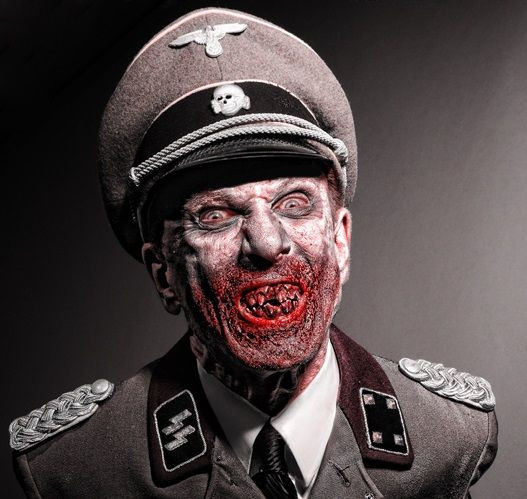Why Do We Watch Horror Films? Some Want To Understand Archetypal Fears While Others Crave The Psychological Ride

Torture. Demented, gory Nazi-like science experiments conducted by mad scientists. And people being killed by bloodthirsty, diseased fellow humans. Horror movies take on all these dark, twisted, and just plain frightful storylines. But why do we watch them? It turns out that there are many reasons: Some people want to watch something that addresses their archetypal fears, while others just want to go along for the psychological ride.
Understanding Archetypal Fears Through Horror
As Halloween approaches, horror themes will permeate deeper into each person’s daily lives. Television channels will broadcast horror movie marathons, homeowners will decorate their lawns and front yards with skeletons and spider webs, and those who really want to be scared will look for haunted houses where they’ll voluntarily subject themselves to real-life movie situations — albeit without actual injury or death. We put ourselves in situations to be scared because we want to understand what our population fears as a whole, according Paul J. Patterson, PhD, an assistant professor of English and co-director of Medieval, Renaissance, and Reformation Studies at Saint Joseph’s University.
“The horror genre addresses our archetypal fears,” Patterson said in a statement. “You can see throughout history how each generation has defined ‘horror,’ and it turns largely on the idea that something outside of our understanding threatening us.”
A class that Patterson is teaching this semester, “Horror in Literature in Film,” explores how horror relates to the fears of the population during time period in which it was created. For example, post-9/11 films were largely centered on the theme of torture-as-horror, which he says could have been a way for people to comprehend the tragedy. Zombie films may have become popular due to the outbreaks of influenza and the threat of biological warfare, all of which threaten whole populations.
Horror Films Give Viewers A Psychological Ride
But love for the horror genre may be more psychological. In a 2007 study, published in the Journal of Consumer Research, participants were asked to watch clips of horror films while they rated their emotions. The study authors found that although all participants expressed similar levels of fear at the end of the clips, those who reported being horror movie lovers expressed more happiness than those who were horror movie haters.
“In the real world, people simultaneously can experience both happiness and sadness, exhilaration and anxiety,” study author Joel Cohen, a professor of marketing and anthropology at the University of Florida, told LiveScience. He says that people enjoy excitement, even if it’s from a negative source, “otherwise, things could be pretty dull.”
Other evidence points to sensation-seeking personality types. People who seek higher levels of arousal thoroughly enjoy the response — heightened feelings of awareness — their bodies have to intense experiences. These experiences range from watching horror films to skydiving and bungee jumping. “High sensation-seekers enjoy morbid curiosity in general and horror movies in particular,” Marvin Zuckerman, professor emeritus of psychology at the University of Delaware, told LiveScience.
High sensation-seekers enjoy levels of arousal higher than that of low sensation-seekers. This is typically caused by two things: testosterone and the body’s response to the neurotransmitter dopamine. Whether it’s because men want to feel more masculine and brave, or for other reasons, men are more likely than women to enjoy horror films, Zuckerman said. But people who enjoy horror films are also more responsive to dopamine, which is produced in high-intensity situations, and is released as a result of rewarding, and sometimes sinful experiences, such as during sex, alcohol consumption, and drug use (heroin and cocaine).
This heightened sense of arousal can linger for some time after watching a horror film too, Glenn Sparks, PhD, a professor and associate head of the Brian Lamb School of Communication at Purdue University, told PsychCentral. He calls it the “excitation transfer process,” and says that it’s the culmination of a heightened heart rate, blood pressure, and respiration process that lingers after a movie, making other experiences, such as hanging out with friends, just as intensified.
Overcoming Fear Of Horror Films
If you want to enjoy a horror flick, but don’t know how, Eduardo Andrade, a professor of marketing at the University of California, Berkley, who co-authored the 2007 study with Cohen, suggests learning to detach yourself from the film’s events. By understanding that the films are acted out, and that all of the blood, guts, and gore are only special effects, you might be able to enjoy them a bit more. “No one’s arm is being sawed off. It’s a special effect. People are not being maimed. These are actors,” Andrade told LiveScience, referring to the movie Saw.



























